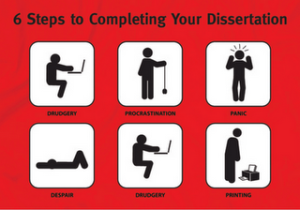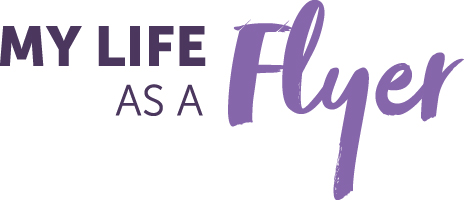With our final semester of senior year underway, many of my friends are stressed about working on the theses, capstones, senior seminars, and senior recitals that come with your final semester of undergrad. Since our physical therapy program here at Naz is a 3+3 program, I finished all of my undergraduate career wrap up work last year including a nearly fifty page honors thesis. The idea of attempting to stuff everything you’ve learned in undergrad into a single final project is an incredibly daunting task but as someone who’s survived the experience I’m here to tell you it can be done! Here are some of the things I learned along the way that helped me write a thesis I am very, very proud of.
Whoa hold on…what is a thesis? A thesis is a long research paper written by a candidate for a college degree under the supervision of one of more faculty members. Here at Naz only graduate students and those in the honors program are required to write a thesis but everyone who graduates completes some sort of comprehensive senior project. For those in the music department, it is a recital prepared and performed by the student; for those in the communication sciences and disorders program, it is a series of open-ended questions designed to test what you have learned over the past four years known as senior comps; for those in the psychology program, it is conducting independent research. Though the work you do will be tailored to your specific major, every senior will do some sort of comprehensive project designed to demonstrate the skills they’ve spent four long (and short at the same time) years developing. Furthermore, many classes, especially those in the humanities, require research papers for a final grade rather than a final exam. Though not quite as long as a senior project, a twenty page research paper is still a daunting project. I’ve found the following advice to be helpful regardless of the project I’m tackling and I hope the same is true for all senior regardless of the form your thesis takes. 
1) Start early. Since a thesis isn’t due until the end of the semester, it’s very easy to keep pushing it off in favor of more pressing assignments and due dates. The only thing more terrifying than doing a thesis is realizing you have to do an entire thesis in three weeks because you put it off all semester.
2) Break it down into smaller pieces. The thought of writing a forty page paper or putting together an entire recital is incredibly daunting. My thesis focused on the ethics of insurance companies and was structured around three case studies where people had been denied services by their providers; I broke it down into a intro section, a section that discussed the ethical systems I was focusing on, a section for each of the respective case studies, and a closing section. Writing six sections that were going to end up being approximately eight pages each made my work significantly easier to stomach than conceiving of the project as a fifty page paper.
3) Make a schedule. I am slightly obsessive about making schedules. I make a to do list every morning when I wake up, when I get home that lists what I want to get done that night, when I’m going to do certain studying for all of my tests…the list goes on and on. I made a schedule spanning the entire semester of when I wanted to get certain aspects of my thesis done. As I had already broken my thesis down into smaller pieces, this was very easy. I gave myself a few weeks for each section. Within those few weeks I scheduled when I wanted to get certain milestones done as well. For example, let’s say I gave myself three weeks to finish the first case study section: week one was to be devoted to any and all research regarding that section, week two was to be devoted to writing the section, and week three was to be devoted to making a final copy of the section. 
4) Build time into your schedule to work on the project. My final semester, I didn’t have class on Monday, Wednesdays, or Fridays (believe me I wish I could go back to that too). I took advantage of the time to make sure my thesis was well done and something I could be proud of when it came time to defend my work. On Mondays, I had a four hour chunk of time when I forced myself go to the library and work on my thesis. I tried to respect the time as much as I would respect the time set aside for classes or work. Having the time built into my schedule for each week really helped me chip away at the work I needed to do.
5) Start your bibliography early. A graduate student who I am infinitely indebted to gave me this advice. As you start to go through your sources make a word document composed of a citation for each one. Then, as bullet points under each citation make notes that summarize the work or are direct quotes that you think may be relevant to your work. DO THIS FOR EVERYTHING YOU READ!! Even if you don’t use the source or you don’t use the quote, it’s better to have more here than you need to rather than vaguely remembering something that was relevant and attempting to track down a journal article you skimmed through once in between classes. As you use the sources or the quotes, highlight them in the document (I used Golden Flyer purple of course). This way, you can be sure you used all the sources you wanted to and the same quote isn’t being used twice.
6) Meet with your advisers early and often. I had two advisers for my thesis; the number you have and/or their amount of involvement depends on your specific project but the more input you can receive from faculty members, the better. I met with each of my advisers once a week starting the first week of the semester. That way, I felt on track with the work I was doing, I was forced to get quality work done each week for my advisers to read, and any changes I needed to make I could do while the work was still fresh in my mind. 
7) Take breaks!! There will be days when you want to tear up all the work you’ve done, build a giant bonfire out of the pieces, and roast s’mores over it. Writing a thesis is frustrating! You’ll hit writer’s block, you’ll feel like you’re drowning in research, you’re adviser will tear apart a section you thought was expertly written…it will be ok! Put your work down and go to the gym, cook dinner, go out for coffee with your friends. As with any work, mental breaks will help you feel refreshed and rejuvenated. I also found it was helpful when I was getting very frustrated to not look at my thesis for four or five days.
Any senior project you do will have its ups and downs but in the end, the work is all worth it and you’ll be left with something you can show off and be proud of long after you graduate. Best of luck! And don’t let the work you have to do overshadow your last semester of undergrad.
Curious about the honors program at Naz? Read about how it has benefited my academic career and beyond!
Questions about my experience with writing a thesis or my experience with Nazareth’s honors program? Feel free to tweet @NAZ_Meg or email mgrant7@mail.naz.edu!

